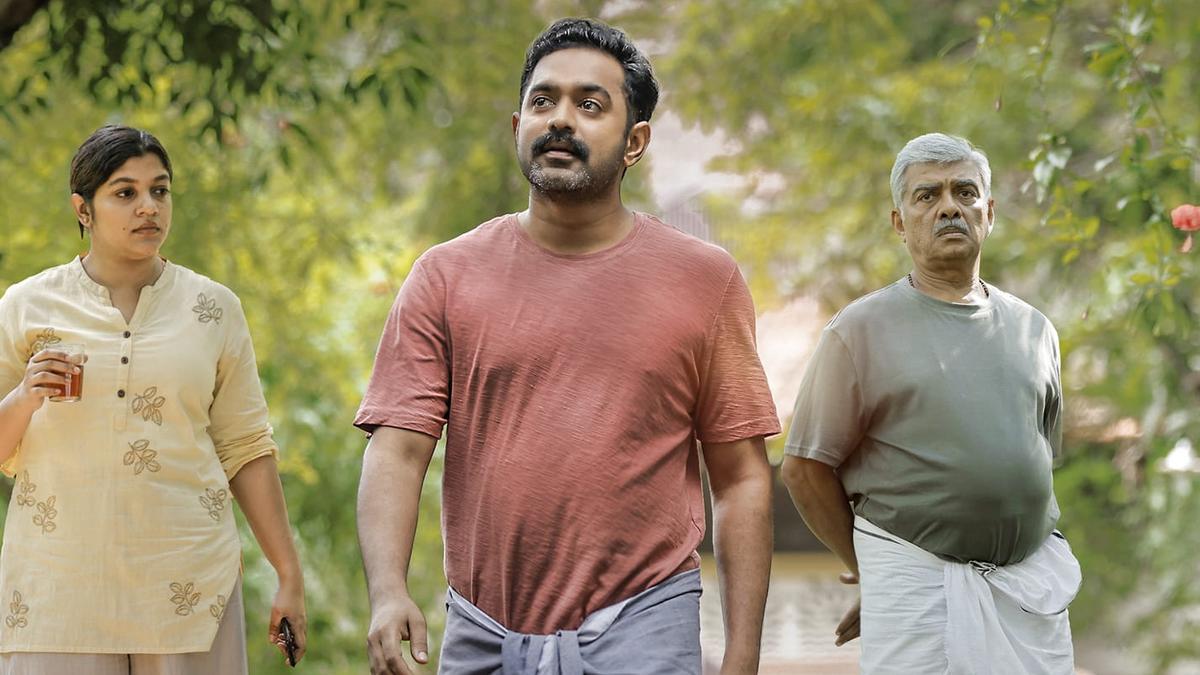
Dinjith Ayyathan finds himself in the spotlight these days, embarking on a series of interviews following the overwhelming success of his latest film, “Kishkindha Kaandam.” This Malayalam thriller has not only captured the hearts of audiences but also solidified Dinjith’s reputation as a promising filmmaker. In an exclusive discussion, Dinjith reveals the confidence and vision that drove him and his team to create a film that has left an indelible mark.
“Kishkindha Kaandam” is a slow-burn thriller that weaves a captivating story of intrigue and suspense. At its core are Appu Pillai, portrayed by the veteran actor Vijayaraghavan, a cantankerous retired army officer, his son Ajay Chandran, played by Asif Ali, who works for the Forest Department, and Ajay’s wife Aparna, a role essayed by Aparna Balamurali. The plot thickens around the family living in an imposing house near a monkey-infested reserve forest. Aparna’s discoveries about her husband and father-in-law propel the story into unexpected territories, shocking viewers with every twist and turn.
Dinjith shares his exhilaration at the film’s strategic release during Onam, a time synonymous with family and celebration in Kerala. This decision, taken by the producer Joby George Thadathil, was met with skepticism by several industry insiders due to the stiff competition from other strong releases. However, Joby’s unwavering belief in the film proved pivotal. “An Onam release holds special significance, and despite concerns from my peers, the film has become a personal expression for Joby chettan,” Dinjith reflects.
The filmmaker reminisces about his journey that began with “Kakshi: Amminipilla” in 2019, a family drama that didn’t see commercial success but was cherished by its audience. The lessons learned from that venture were crucial. The promotional shortcomings were identified post-release, prompting Dinjith and his team to take proactive measures in ensuring the word of Kishkindha Kaandam was well spread. His longtime collaborators, Bahul Ramesh and Sooraj ES, have once again played integral roles as the cinematographer and editor, respectively.
Bahul’s screenplay for “Kishkindha Kaandam” has been lauded as one of the finest in recent Malayalam cinema. The narrative is tightly packed with emotional intensity, leaving no room for melodramatic reprieves. Dinjith acknowledges the challenges posed by shooting non-sequentially, putting the onus on the actors to maintain emotional continuity. “We had to reshoot key sequences involving Asif due to their complexity being captured before the actors could fully absorb the arc of their characters,” Dinjith explains.
Dinjith is quick to credit his crew for the seamless execution of the film’s complex storyline.
. Bahul, having written the script during the lockdown, was clear in his vision, which led to an unspoken understanding between the director and his team. This synergy, Dinjith believes, is a prerequisite for any film to resonate with its audience. Sooraj’s adept editing skills enabled the story to flow naturally, allowing the viewer to remain engaged from start to finish.
The absence of traditional songs in “Kishkindha Kaandam” is complemented by a dynamic soundscape, crafted by Mujeeb Majeed, known for his work on films like “Mandharam” and “Thinkalazhcha Nishchayam.” The musical backdrop, particularly the track “Doore doore” featuring Tibetan lyrics, became an integral part of the promotional material.
Dinjith valued the insights of seasoned director Fazil, who highlighted the importance of carefully selecting the cast. “With veterans like Vijayaraghavan, Asif, Aparna, and others, the film’s casting was critical. Each actor brought something unique to their role,” recounts Dinjith. He notes how Vijayaraghavan’s intuitive grasp of his character added depth to the narrative while acknowledging Asif Ali’s growth and potential as an actor.
The road to “Kishkindha Kaandam” was not without its hurdles. Production delays encompassed everything from logistical issues to location setbacks. Originally planned for 2023, the selection of the primary shooting location proved challenging. After the initial choice was scuttled, a suitable location was found in Palakkad, delaying the shoot but not the passion driving the project.
Reflecting on his transition from the animation industry in Chennai to filmmaking, Dinjith acknowledges the risk he took in pursuing his dream without any connections in the film industry. His early work in visual effects for popular Malayalam films provided a foothold, eventually leading to his collaboration with actors like Dulquer Salmaan and Asif Ali.
The emotional crescendo of “Kishkindha Kaandam” that sees Asif’s character embrace the typically reticent Kuttettan has become a talking point among audiences. Dinjith shares a personal anecdote that parallels this cinematic moment. Having never hugged his own parents, Dinjith was moved to do so after they visited him recently. His father, deeply touched by this gesture, was brought to tears, making the moment a cherished one in Dinjith’s life. As the filmmaker looks back on the journey of “Kishkindha Kaandam,” it is clear that the film has fostered both professional acclaim and personal growth.












